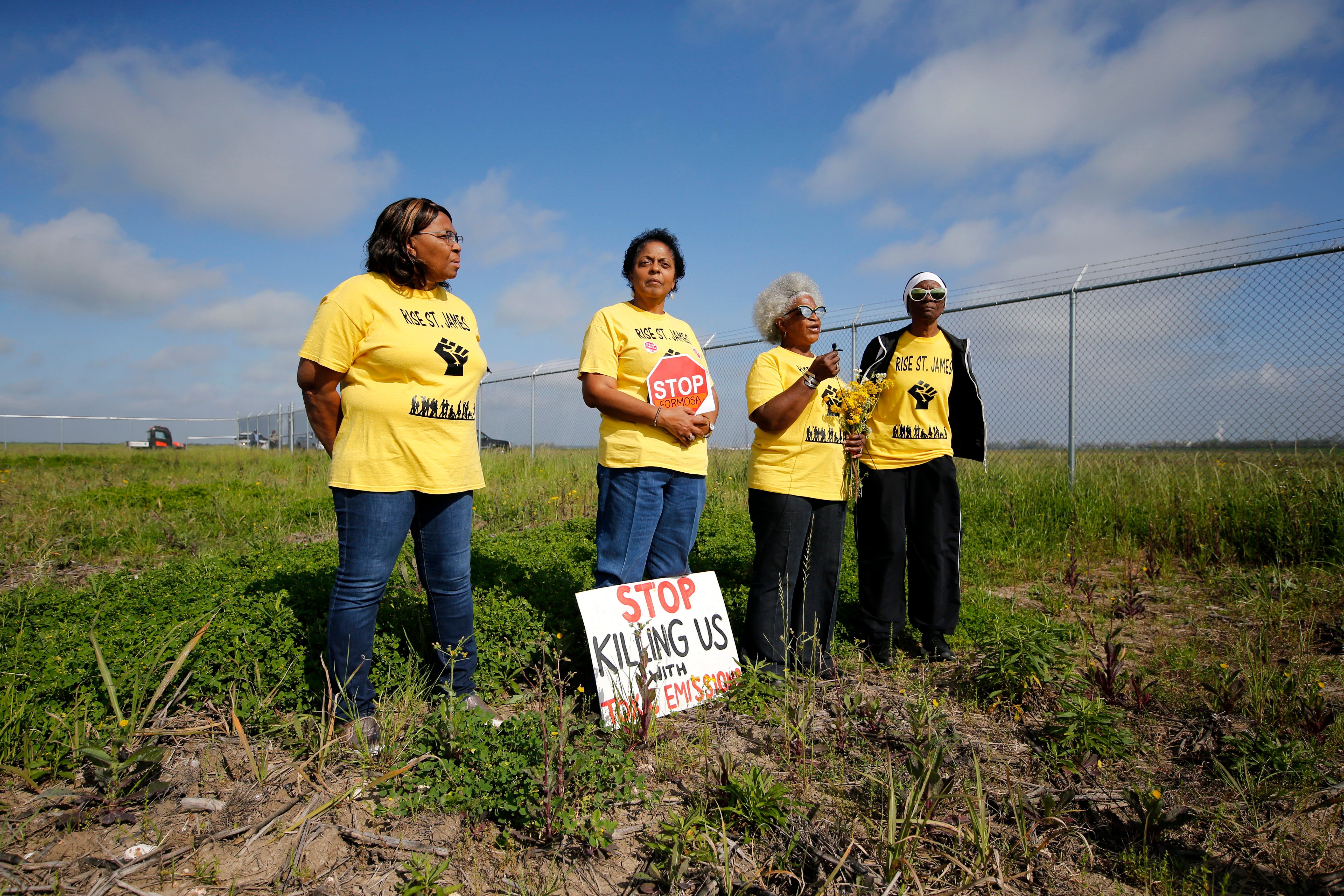‘Nail in the coffin’: Delays for Louisiana plastics plant marks turning point for Cancer Alley
Army Corps orders review of multi-billion dollar facility to determine ‘environmental justice implications’ in victory for activists and communities fighting construction
Your support helps us to tell the story
From reproductive rights to climate change to Big Tech, The Independent is on the ground when the story is developing. Whether it's investigating the financials of Elon Musk's pro-Trump PAC or producing our latest documentary, 'The A Word', which shines a light on the American women fighting for reproductive rights, we know how important it is to parse out the facts from the messaging.
At such a critical moment in US history, we need reporters on the ground. Your donation allows us to keep sending journalists to speak to both sides of the story.
The Independent is trusted by Americans across the entire political spectrum. And unlike many other quality news outlets, we choose not to lock Americans out of our reporting and analysis with paywalls. We believe quality journalism should be available to everyone, paid for by those who can afford it.
Your support makes all the difference.Environmental activists and communities living in the footprint of Louisiana’s petrochemical and oil and gas industries secured a victory with the federal government’s pause on a multibillion dollar plastics plant pending a review of its public health impacts.
A campaign to block construction of Formosa Plastics’ proposed $9.4bn facility in St James Parish sparked widespread protests, appeals to international aid groups and several lawsuits.
In March, a report from the United Nations called the project an example of environmental racism, with disproportionate impacts on the largely Black and low-income communities in Louisiana’s Cancer Alley, named for the area’s elevated risk of cancers and respiratory diseases.
Seven of the top 10 US Census tracts with the highest cancer risks are in Louisiana, according to the Environmental Protection Agency. Six are in St John the Baptist Parish, and another is in neighbouring St Charles Parish.
On 18 August, the US Army Corps of Engineers announced that the agency would perform a comprehensive environmental impact statement for the Formosa project, which advocates anticipate could indefinitely delay plans or prompt the company to pull out completely.
A memo issued by the Assistant Secretary of the Army for Civil Works said the assessment will “thoroughly review areas of concern, particularly those with environmental justice implications”.
The move reflects the agency’s commitment to “be a leader in the federal government’s efforts to ensure thorough environmental analysis and meaningful community outreach,” according to the memo.
Through a subsidiary, Formosa’s planned Sunshine Project would span 2,300 acres, including shipping, rail, pipelines and wastewater treatment plants, affecting more than 100 acres of wetlands and other waterways, according to the Army Corps.
The project would emit more than 13 million tonnes of greenhouse gases each year – equivalent to roughly 3.5 coal-fired power plants – and produce 800 tonnes of toxic air pollutants each year, doubling current emissions in the parish, according to the Louisiana Bucket Brigade, a statewide environmental justice group.
Director Anne Rolfes said she is hopeful that the government’s announcement is “the nail in the coffin” for the company’s prospects in St James Parish.
“Of course one of the biggest plastics plants in the world should require an environmental impact statement,” she said in a statement. “Our state and federal officials should have demanded it from the outset. … And don’t try to build somewhere else. Pack up and go home.”

The “Cancer Alley” corridor in Louisiana has among the highest risks of cancer in the US, with dozens of petrochemical plants stretching along the Mississippi River and into communities breathing in an aggressive list of pollutants.
Highways and communities along the seven-parish stretch between Baton Rouge and New Orleans are dotted with plants colouring the skylines with tall flares burning off excess gasses.
Racial disparities in the state’s health outcomes – rooted in systemic racism and a historic lack of public health support for the state’s poorest residents – are especially acute in the mostly Black parishes in its industrial corridors, which have been under closer scrutiny during the coronavirus pandemic, as reports link air pollution and cancer to higher risk of severe Covid-19 impacts.
“The Army Corps has finally heard our pleas and understands our pain. With God’s help, Formosa Plastics will soon pull out of our community,” said Rise St James organisert Sharon Lavigne. “Now the world is watching this important victory for environmental justice.”
The plant has been on hold following a lawsuit from Rise St James, Louisiana Bucket Brigade, Healthy Gulf and the Center for Biological Diversity challenging the Clean Water Act permit issued by the federal government in 2019.
Plaintiffs argue that Army Corps officials failed to disclose potential environmental damage and public health risks and “failed to properly evaluate and protect burial sites of enslaved people discovered on the property,” according to the centre.
A spokesperson for Formosa Plastics Group said the company’s “unwavering commitment to the parish and to Louisiana has remained constant as the company continues to invest in community needs and build meaningful community partnerships.”
In January, President Joe Biden signed several executive orders aimed at tackling the climate crisis and environmental pollution, declaring that “environmental justice will be at the center of all we do addressing the disproportionate health and environmental and economic impacts on communities of color” along so-called “fenceline communities” in industrial corridors populated by Black and indigenous people.
He singled out “the hard-hit areas like Cancer Alley in Louisiana,” among other areas.




Join our commenting forum
Join thought-provoking conversations, follow other Independent readers and see their replies
Comments